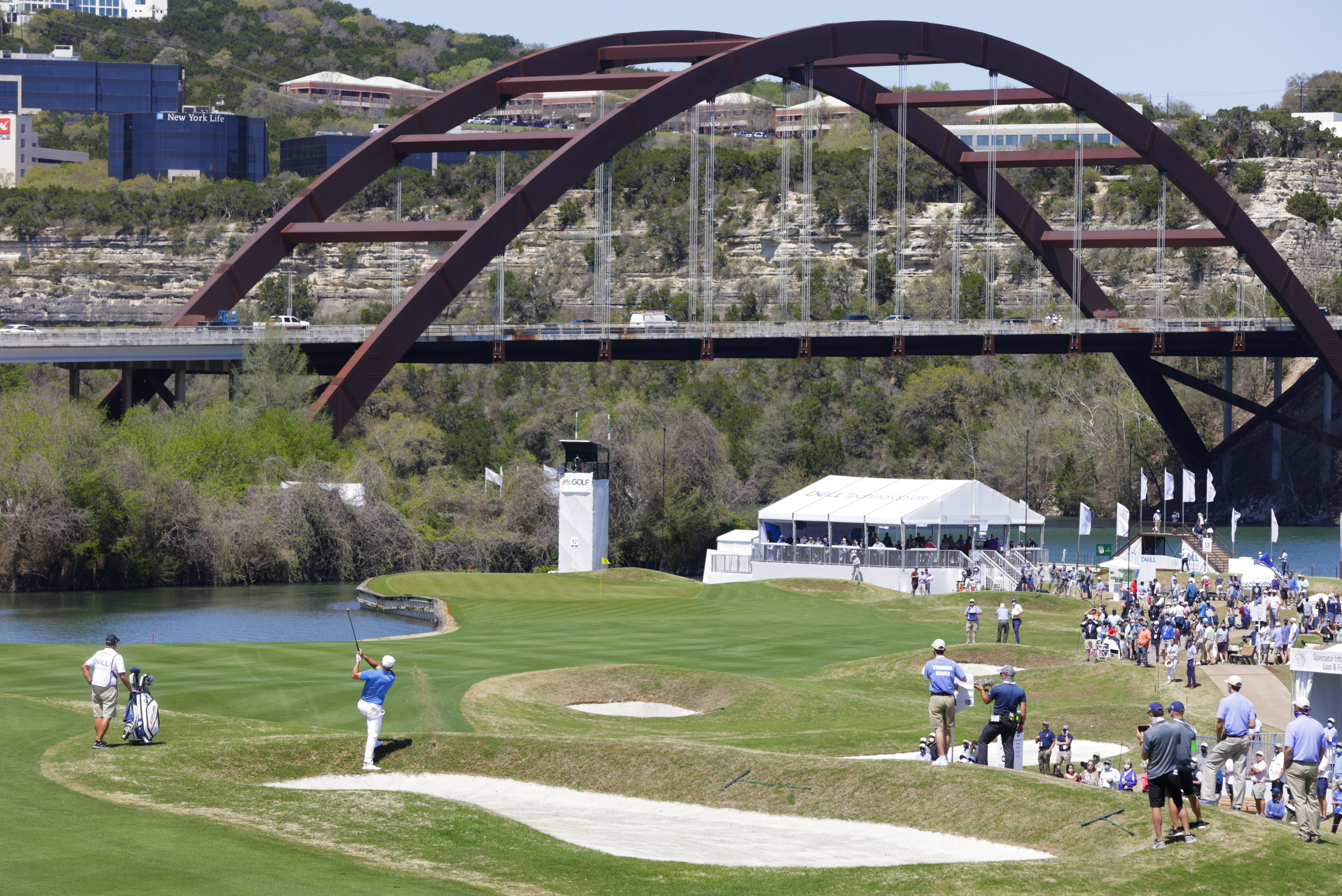![]()
The coterie of PGA Tour executives who masterminded the format used for the WGC-Dell Technologies Match Play clearly didn’t consult in advance the writings of nineteenth-century theologian Tryon Edwards.
“Compromise is but the sacrifice of one right or good in the hope of retaining another, too often ending in the loss of both,” Edwards famously wrote.
The unbending old minister had a point, at least as it pertains to golf in its purest form. For if we are to dilute the very essence of match play competition — win or hit the road — then we ought to expect a more rewarding pay-off for the sacrifice than Billy Horschel vs. Scottie Scheffler.
That’s not intended as a rap on Horschel and Scheffler, both of whom earned their places in Sunday’s WGC final at Austin Country Club, but it is an indictment of the facile effort to quasi-engineer an outcome favorable to ratings at the expense of competition. Golf and match play are innately capricious, and trying to manufacture from them a particular scenario is a fool’s errand.
That desired outcome is explicitly uncomplicated, if unstated explicitly: showcasing the game’s brightest stars in head-to-head matches on the final day. With all due respect to Messrs. Horschel, Scheffler, Perez and Kuchar, none of Sunday’s competitors are luminous stars of the magnitude imagined.

Billy Horschel during the fourth day of the WGC Dell Technologies Match Play at Austin Country Club. Mandatory Credit: Erich Schlegel-USA TODAY Sports
It was in 2015 that the Tour dispensed with the straightforward 64-man knockout bracket used since the inception of the WGC-Dell Technologies event sixteen years earlier. A round-robin format was instituted in which 16 four-man groups play over three days to determine who advances to the knockout phase. Early returns seemed to suggest this competitive contortion was yielding the hoped-for product. From ’15 to ’17, the tournament was won by two No. 1 seeds (Rory McIlroy and Dustin Johnson) and one No. 2 seed (Jason Day).
But that may have owed more to form than format.
Match Play Sundays have typically been the domain of players with more talent than celebrity, men who unquestionably deserve their success but who seldom fire interest among fans. The only thing guaranteed by the addition of group play is an oddball assortment of results that seem jarring in elite competition.
Horschel and Perez, for example, were both defeated on Thursday yet faced off in Sunday’s semi-final. Ryan Palmer and Xander Schauffele didn’t lose a match but both were eliminated Friday, in Schauffele’s case with a record identical to that of Scheffler, a win and two halves. Brian Harman lost his first-round match to Patrick Cantlay, but contested a quarterfinal on Saturday afternoon. Cantlay won two matches but didn’t reach the knockout stage. Abraham Ancer met the same numerical fate, while the man he beat on Thursday, Kevin Streelman, did advance. Daniel Berger trounced Erik Van Rooyen, 6 and 4, on the first day, but you can probably guess by now which one of them still had a tee time in the final 16.

Scottie Scheffler made his birdie putt on No. 11 in the semifinal match of the final day of the WGC Dell Technologies Match Play golf tournament at Austin Country Club. Erich Schlegel-USA TODAY Sports
None of this is the fault of the players. They can only contest whatever format is presented. The needless complexity of the WGC-Dell Technologies Match Play is the responsibility of the Tour, which has seldom met a conundrum it couldn’t further complicate (that’s why the FedEx Cup playoffs system has had more touch-ups than Cher). What the format delivered in 2021 is this: the highest seed to reach Sunday was No. 30, Scheffler. Rounding out the last day foursome were Nos. 31, 32 and 52.
Thirteen major championship winners began play on Wednesday. Only one of them — Sergio Garcia — was alive on Saturday afternoon, while among the other dozen only Watson and Jordan Spieth made it out of group play. Just two — TWO! — of the top 31 ranked players in the world made the final 16: Rahm and Tommy Fleetwood.
The vagaries evident in ’21 continue a trend. At the last Match Play, in 2019, 48th-seeded Kevin Kisner edged No. 23 Kuchar. The year before that, Kisner was seeded 32nd and lost the final to No. 35 Bubba Watson, while Justin Thomas was only one of the top 12 seeds to reach the final eight.
As Saturday night fell in Ponte Vedra Beach, somewhere a suit sobbed while staring at the sure-thing algorithm he was convinced could sidestep the beautiful, binary simplicity of W-L and 64-man brackets and deliver a compelling television showdown.
Golf is a fickle mistress and match play its most mercurial format. That is apparent not only in every edition of this tournament, but in Ryder and Presidents Cup play too. If Tour and TV executives want to ensure brand names feature in the Sunday final of the WGC Match Play — don’t expect an official acknowledgment of this desire — there’s only one way to accomplish that: invite only brand names to participate. Because if you prize Goliaths, you’d best stop inviting Davids to the party.
![]()

